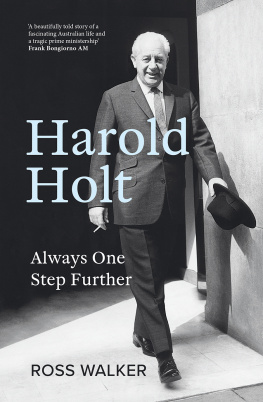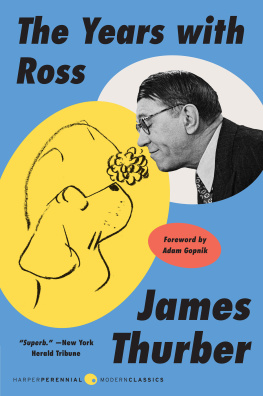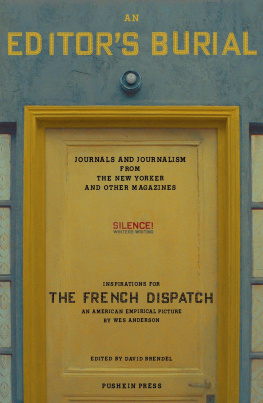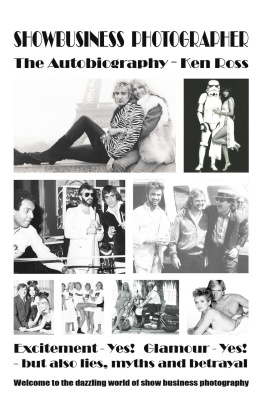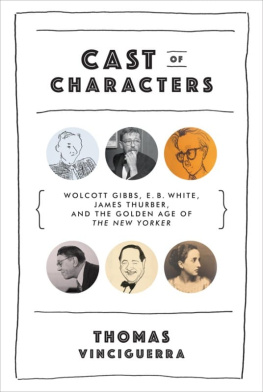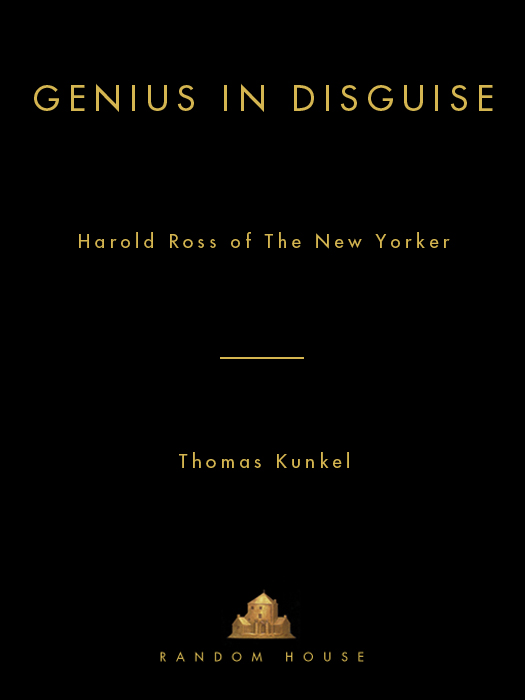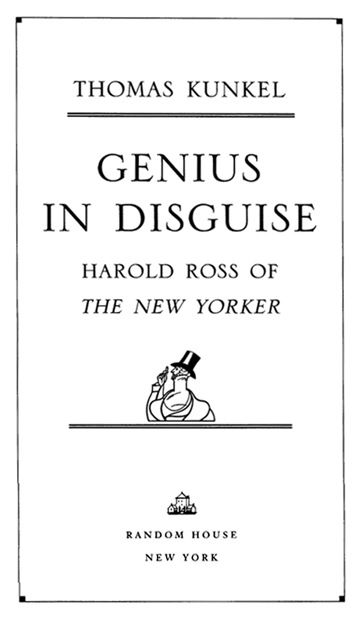Ross Harold Wallace - Genius in disguise : Harold Ross of the New Yorker
Here you can read online Ross Harold Wallace - Genius in disguise : Harold Ross of the New Yorker full text of the book (entire story) in english for free. Download pdf and epub, get meaning, cover and reviews about this ebook. City: New York, United States, year: 1995, publisher: Random House Publishing Group, genre: Non-fiction. Description of the work, (preface) as well as reviews are available. Best literature library LitArk.com created for fans of good reading and offers a wide selection of genres:
Romance novel
Science fiction
Adventure
Detective
Science
History
Home and family
Prose
Art
Politics
Computer
Non-fiction
Religion
Business
Children
Humor
Choose a favorite category and find really read worthwhile books. Enjoy immersion in the world of imagination, feel the emotions of the characters or learn something new for yourself, make an fascinating discovery.

- Book:Genius in disguise : Harold Ross of the New Yorker
- Author:
- Publisher:Random House Publishing Group
- Genre:
- Year:1995
- City:New York, United States
- Rating:4 / 5
- Favourites:Add to favourites
- Your mark:
Genius in disguise : Harold Ross of the New Yorker: summary, description and annotation
We offer to read an annotation, description, summary or preface (depends on what the author of the book "Genius in disguise : Harold Ross of the New Yorker" wrote himself). If you haven't found the necessary information about the book — write in the comments, we will try to find it.
Abstract: Magazines are about eighty-five percent luck, Harold Ross told George Jean Nathan. I was about the luckiest son of a bitch alive when I started The New Yorker. Ross was certainly lucky back in 1925, but he was smart, too. When such unknown young talents as E.B. White, James Thurber, Janet Flanner, Helen Hokinson, Wolcott Gibbs, and Peter Arno turned up on his doorstep, he knew exactly what to do with them. So was born what many people consider the most urbane and groundbreaking magazine in history. Thomas Kunkel has written the first comprehensive biography of Harold W. Ross, the high school dropout and Colorado miners son who somehow blew out of the West to become a seminal figure in American journalism and letters, and a man whose story is as improbable as it is entertaining. The author follows Ross from his trainhopping start as an itinerant newspaperman to his editorship of The Stars and Stripes, to his role in the formation of the Algonquin Round Table, to his audacious and near-disastrous launch of The New Yorker. For nearly twenty-seven years Ross ran the magazine with a firm hand and a sensitivity that his gruff exterior belied. Whether sharpshooting a short story, lecturing Henry Luce, dining with the Duke of Windsor, or playing stud poker with one-armed railroad men in Reno, Nevada, he revealed an irrepressible spirit, an insatiable curiosity, and a bristling intellect - qualities that, not coincidentally, characterized The New Yorker. Ross demanded excellence, venerated talent, and shepherded his contributors with a curmudgeonly pose and an infectious sense of humor. l am not God, he once informed E.B. White. The realization of this came slowly and hard some years ago, but l have swallowed it by now. l am merely an angel in the Lords vineyard. Through the years many have wondered how this unlikely character could ever have conceived such a sophisticated enterprise as The New Yorker. But after reading this rich, enchanting, impeccably researched biography, readers will understand why no one but Ross could have done it
Ross Harold Wallace: author's other books
Who wrote Genius in disguise : Harold Ross of the New Yorker? Find out the surname, the name of the author of the book and a list of all author's works by series.



